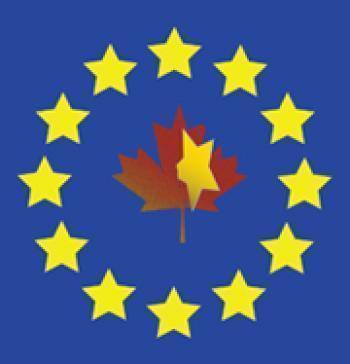Last week, European Ambassador to Canada Marie-Anne Coninsx briefed a parliamentary trade committee on the status of parallel economic and political negotiations between the EU and Canada. She said while the Comprehensive Economic and Trade Agreement (CETA) was almost finished, Canada continued to resist a clause in a related Strategic Partnership Agreement that would allow either side to suspend trade benefits if the other was found violating human rights.
“We’re speaking here about [a] serious violation, we’re speaking here about genocide,” said Coninsx of a clause found in all EU agreements, including with Latin American countries. “We count on Canada also to accept it, because particularly I would say there is absolutely no doubt about Canada’s commitment and record on human rights and non-proliferation.”
If we were talking about a formal commitment on paper, that might be true. But Colombian human and Indigenous rights advocates in Ottawa last week suggest that in their country, Canadian trade and investment is profiting from a “genocide” against Indigenous communities as land is cleared for resource development. They can’t understand why Canada won’t act to stop Canadian companies from profiting from this situation.
The Colombian advocates’ visit to Canada’s capital, which was sponsored by the Americas Policy Group, Amnesty International, the Assembly of First Nations and others, is covered in an Ottawa Citizen article on February 6. The situation is extreme, and Canada’s apparent indifference to it, or unwillingness to do anything, contradicts Europe’s optimistic view of this government’s respect for human rights.
“Colombia’s high court concluded that as a result of systemic violence from state armed forces, paramilitary groups and leftist rebels, 35 of Colombia’s 102 indigenous communities are at risk of ‘physical and cultural extermination’,” says the article. “There has been a call for intervention by the United Nations special adviser on the prevention of genocide… But [Colombian deputy justice Guzman] Duque said little has happened to stop the violence or protect the groups.”
Duque was one of the Colombia experts in Canada last week. He told Canadian politicians, media and NGOs about the recruitment of Indigenous child soldiers by rebel groups who are “forced to kill their friends or be wired with explosives.” Duque described systematic rape and torture of Indigenous women, and “a campaign of displacement of indigenous communities, whose land is later granted as part of a mining concession — often to Canadian companies.
“In some cases, he said, government forces bomb indigenous land and later grant extractive companies rights to it.”
Coincidentally, as these meetings were happening in Ottawa, a Canadian junior company, Cosigo Resources Ltd. of Vancouver, was accused of attempting to bribe an Indigenous community in the Amazon to try to eliminate a nature reserve on the Yaigoje Apaporis Natural National Park.
Like in Honduras, the Canadian government helped draft Colombia’s mining laws. The Conservatives have all but merged foreign policy and international development with the profit interests of Canada’s formidable mining sector. Yet they continue to deflect all attempts to hold Canadian extractive companies accountable for their activities abroad.
Canada’s response to the crisis in Colombia has been to hide behind the supposed benefits a free trade deal should bring to the region, and to start selling assault rifles to the Colombian military (and other developing countries) as a boost to our domestic arms manufacturers. In true Orwellian style, a Canadian government spokesperson told the Ottawa Citizen, “The promotion and protection of human rights is an integral part of Canadian principles foreign policy.”
There are limited tools the Canadian government could use to start to fix the situation. One of them is the annual human rights impact assessment both Canada and Colombia are required to perform. In Canada, the government must present its report to Parliament within 30 days of May 15 each year.
For the past two years, Canada’s reports have avoided the impact of Canadian investment and trade on Indigenous communities by claiming limply, “There is no evidence of a causal link between reductions in tariffs by Canada in accordance with the CCOFTA, and changes in human rights in Colombia.”
Duque told the Citizen, “We think that including mention of this situation and a serious report on the very serious human rights crimes that have taken place and with which Canadian corporations are associated in a report to Parliament could help make a difference.”
You can write to Canada’s trade committee to echo this call for a proper human rights impact assessment of Canada’s trade and investment on Colombian communities. Members of the committee include: Ron Cannan (CPC), Randy Hoback (CPC), Rob Merrifield (CPC), Massimo Pacetti (LPC), Don Davies (NDP trade critic), Ed Holder (CPC), Marc-Andre Morin (NDP), Russ Hiebert (CPC), Laurin Liu (NDP), and Erin O’Toole (CPC). Newly elected Liberal trade critic Chrystia Freeland should also be included (see all emails below).
[email protected];[email protected]; [email protected];
[email protected]; [email protected]; [email protected];
[email protected]; [email protected]; [email protected];
[email protected]; [email protected]
Canadians can also act through the Canadian Network on Corporate Accountability’s “Open for Justice” campaign, launched in October, that would have Canada open its courts to people around the world who have been harmed by the operations of Canadian companies.



